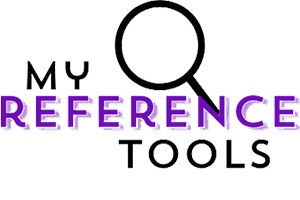What to Know Before Buying a Used Car in 2025

Buying a used car can be an exciting yet nerve-wracking experience. With the right preparation, though, you can drive away feeling confident about your purchase. The used car market in 2025 presents unique opportunities and challenges, from navigating post-pandemic supply shifts to exploring the growing selection of hybrid and electric vehicles.
Whether you’re a first-time buyer or a seasoned shopper, here’s everything you need to know before buying a used car this year.
1. Understand the Current Market Trends
The used car landscape has seen some changes in recent years due to supply chain disruptions and shifts in consumer preferences. Here are the key market trends for 2025 you should be aware of:
Increased Supply of Electric and Hybrid Vehicles
With automakers ramping up production of electric (EV) and hybrid models over the last decade, more used options are on the market than ever. If you’re considering reducing your carbon footprint or lowering your long-term fuel costs, this might be the ideal time to go green.
Stabilized Prices for Traditional Gas Vehicles
The pricing bubble seen in the post-pandemic years has largely settled. While demand for fuel-efficient vehicles remains high, you’re less likely to face exorbitant prices for traditional gas-powered cars.
Tip: Research what cars are selling for in your area using tools like Kelley Blue Book or Edmunds. This will help you spot fair prices and identify potential deals.
2. Do Your Homework Online
Don’t step foot in a dealership or meet a private seller until you’ve done some research. Start your car-buying process by gathering as much information as possible about the types of vehicles that suit your needs.
Compare Models and Features
Narrow down your search by considering factors like:
- Size and type (e.g., sedan, SUV, truck)
- Fuel efficiency (especially if the car will be your daily commuter)
- Safety features (such as adaptive cruise control or lane-keeping assistance)
- Maintenance costs (luxury brands may come with higher upkeep expenses)
Use comparison platforms or manufacturer websites to analyze the pros and cons of different models.
Check Vehicle History
Once you’ve identified a specific car, run its Vehicle Identification Number (VIN) through a trusted platform like Carfax or AutoCheck. This report will detail the car’s history, including:
- Previous owners
- Accident or damage reports
- Mileage accuracy
- Service records
- Recall information
Avoid cars with red flags, such as frequent repairs, severe damage, or odometer inconsistencies.
3. Get Familiar with Electric and Hybrid Options
If you’re eyeing an electric car or hybrid, there are a few additional considerations to keep in mind:
Battery Health
The primary concern with used EVs is battery life. Batteries degrade over time, and replacing one can be costly. A professional inspection should include a thorough check of the battery’s condition and range capacity.
Charging Infrastructure
Consider where and how you’ll charge the car. Check the availability of charging stations near your home, workplace, or frequent destinations. If charging will be inconvenient, a hybrid vehicle with a backup gas engine might be a better option.
Pro Tip: Some states offer tax credits or rebates when you purchase a used electric or hybrid vehicle, so explore whether you’re eligible for additional savings.
4. Inspect Before You Commit
The condition of a used car can make or break the deal, which is why an inspection is non-negotiable. Here’s what you should do:
Conduct a DIY Inspection
When first checking out a car, look for signs of wear and tear, including:
- Uneven tire wear (could indicate alignment issues)
- Rust or corrosion under the hood or on the frame
- Strange odors in the interior or trunk (could signal water damage)
Start the engine and listen for unusual noises, and always take the car for a test drive. Pay attention to how it accelerates, brakes, and handles.
Get a Professional Pre-Purchase Inspection
Even if you’re satisfied with your initial review, it’s worth hiring a mechanic to do a pre-purchase inspection. They’ll look for hidden issues you might miss, such as:
- Engine or transmission problems
- Exhaust system leaks
- Faulty electrical components
The investment in a professional inspection could save you thousands in repair costs down the road.
5. Brush Up on Recalls and Safety
Safety is non-negotiable, and recall checks are critical when buying a used car. Look up the car’s VIN on the National Highway Traffic Safety Administration (NHTSA) website to search for recalls. Ensure all safety-related repairs have been made before finalizing the purchase.
Bonus tip: Check for updated safety ratings on platforms like the Insurance Institute for Highway Safety (IIHS). A car that performed well in crash tests will give you peace of mind, especially for family vehicles.
6. Master the Art of Negotiation
Whether you’re dealing with a private seller or dealership, negotiation is an essential skill that can save you a significant amount of money.
Start With Research
Walk into negotiations armed with data from resources like Kelley Blue Book, Edmunds, or local listings. Knowing the car’s fair value gives you leverage.
Be Patient
Don’t jump at the first offer. Politely point out any concerns (e.g., scratches, recent repairs) to strengthen your case for a price reduction.
Know When to Walk Away
If the seller isn’t willing to budge or you feel pressured, remember you have other options. Don’t settle for a deal that doesn’t feel right.
Pro Tip: Dealers may have more flexibility on pricing at the end of the month, quarter, or year when they’re trying to meet sales quotas.
7. Explore Financing Options
If you’re not paying for the car in full upfront, understanding financing options is crucial. Here’s what to consider:
Check Your Credit Score
A higher credit score can unlock better loan terms and lower interest rates. Request a free credit report from sites like AnnualCreditReport.com before applying for financing.
Compare Lenders
Shop around for auto loans to find competitive rates. Don’t feel obligated to use dealership financing if you can secure a better rate from a bank or credit union.
Factor in Total Costs
Don’t just focus on the monthly payment. Include expenses like loan interest, insurance, taxes, and registration to get a clear picture of the car’s affordability.
8. Plan for Ongoing Costs
Buying a used car is just the beginning. Make room in your budget for the following:
- Insurance premiums: Rates can vary based on the car’s model, age, and your driving record.
- Routine maintenance: Oil changes, tire replacements, and brake repairs add up over time.
- Fuel or charging: Fuel-efficient cars and EVs can lower this expense, but evaluate what works best for your lifestyle.



